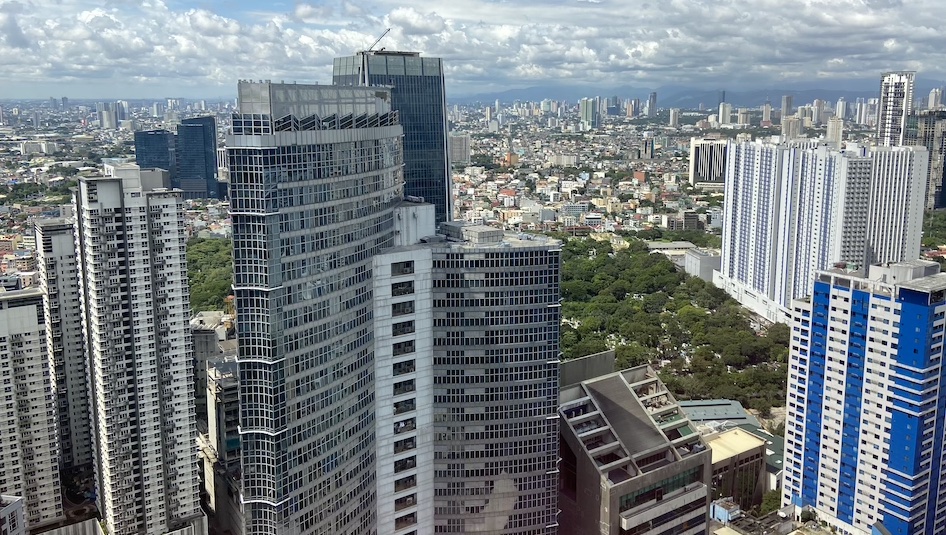Real estate investing in the Philippines: What discerning Filipino investors should know
Philippines real estate investments are a proven way to grow wealth. For sure, it has risks. But if you manage them well, you can maximize the returns.

With a dynamic economy and a burgeoning middle class, there is a myriad of opportunities for high-net-worth Filipinos looking to leverage their wealth in the real estate sector.
The Philippines’ real estate sector is characterized by a mix of residential, commercial, and industrial properties, with key urban centers like Metro Manila, Cebu, and Davao serving as hotspots for investment.
Residential properties, including condominiums and houses, have consistently demonstrated resilience and appreciation over the years. Commercial properties, such as office spaces and retail establishments, are buoyed by the country’s thriving business landscape.
New trends have emerged. Self-storage facilities such as StorageMart and agriculture or agri-businesses are shaping real estate investing in the Philippines as well.
Key considerations when investing in real estate in the Philippines
If you are a high-net-worth Filipinos, strategic investment approaches are paramount in navigating the diverse real estate landscape.
The first key consideration to optimize returns is “location, location, location.” Investing in prime locations ensures both rental income and property appreciation. Choose areas with strong economic fundamentals, excellent infrastructure, and proximity to amenities.
Don’t limit yourself within the Philippines. Look for opportunities across the globe. We see vast improvements in infrastructure that accompany the rise in demand for data centers from companies like Google, Amazon, Facebook.
Then there are the self-storage facilities and the innovations in healthcare that created a need for more facilities for health services, including senior care.
You can diversify your real estate holdings across different types of properties. A balanced portfolio might include a mix of residential, commercial, and perhaps industrial properties. This strategy helps mitigate risk and maximizes potential returns.
The current landscape of real estate is dynamic, influenced by economic shifts, policy changes, and market trends. Regularly staying informed about these factors empowers investors to make informed decisions, adapting their strategies to market conditions.
You should also consider the complex legal and regulatory landscape. Seek advice on land ownership restrictions, tax considerations, encumbrances, compliance with zoning regulations, and legal due diligence before entering any transaction.
Growing wealth through rental income and appreciation
Rental income and property appreciation are the twin engines driving real estate wealth creation.
You can optimize them through strategic planning. Real estate is inherently a long-term investment. You should adopt a patient and strategic approach, allowing your portfolios to appreciate over time and weather short-term market fluctuations.
As the properties are held, you can consider value-adding strategies such as property renovations or upgrades. Enhancing the appeal and functionality of a property not only attracts higher rental rates but also contributes to overall appreciation.
Engaging with a professional property management service provider ensures efficient rental income generation. This includes tenant sourcing, rent collection, and property maintenance, allowing investors to focus on portfolio growth.
Managing real estate investment risks
While real estate can be lucrative, it’s not without risks. Investing in comprehensive insurance coverage for the invested properties is paramount to mitigating the risks of real estate investing in the Philippines.
This includes coverage for natural disasters, fire, and other unforeseen events that could impact the value of the investment. Engaging with legal experts who specialize in real estate to navigate potential legal challenges is also a must. Having a team of professionals ensures that investors are well-protected against legal risks.
As mentioned earlier, diversifying across different types of properties and locations spreads risk. This approach minimizes the impact of adverse events on the overall portfolio. Real Estate Investment Trusts (REITs) have emerged as a viable avenue for high-net-worth Filipinos seeking to diversify portfolios and generate passive income streams.
REITs – an alternative real estate investment
REITs are investment vehicles that pool funds from multiple investors to purchase, manage, and operate income-generating real estate properties. REITs can be invested exclusively in local properties, or across the world, created for investors with a global perspective.
Are REITs becoming appealing again? Historically, REITs have been attractive to investors seeking exposure to real estate without directly owning physical properties. They often offer regular dividends, diversification benefits, and the potential for capital appreciation. Today we’re seeing more and more individuals getting back into REITs.
There are many REITs out there you can choose from. One such example is AXA Philippines’ Global REIT and Property Income Fund, which aims to cater to the wealth growth needs of high-net-worth individuals in the Philippines.
Through the fund, investors can strategically diversify their wealth by investing in prime real estate properties across the globe. The fund managers carefully select and manage the properties to ensure that investors receive optimal returns on their investments.
Some may offer cash payouts aside from the potential for long-term capital appreciation. For example, a 5-percent per annum cash payout can provide a reliable source of passive income for investors, which is excellent for managing cash flows efficiently.
This is like owning an actual rental property providing a monthly income of 4 to 6 percent per annum without the hassle of maintenance and management.
As with any type of investment, deciding on the right time to invest in REITs requires a few ideal conditions. Before making any major decisions, monitor the economic and real estate market for potential property appreciation and rental income. Keep an eye on interest rates, as low rates can benefit real estate companies. Assess the historical and potential future dividend yield of the REIT, ensuring a well-diversified portfolio. Remember, REITs are often suited for long-term investors, aligning with financial goals, so if you can’t stay invested in the long term, REITs may not be right for you.
Should you level up your real estate investing?
Investing in real estate investing in the Philippines may help you grow and diversify your wealth. By understanding the intricacies of the Philippine real estate landscape, navigating legal considerations, managing risks, and implementing strategic investment approaches, you can position yourself for long-term success in this dynamic market.
With a careful balance of risk and reward, real estate remains a cornerstone of wealth creation for discerning investors in the Philippines.
(Bookmark and visit Metrobank Wealth Insights at www.wealthinsights.ph daily for investment insights and ideas. If you wish to know more about the AXA Global REIT and Property Income Fund or want advice on real estate investing, just call your Metrobank Relationship Manager. Not a client yet? Please sign up here so you can begin your wealth journey with us.)
JOY QUERO is a Senior Retail Proposition Manager at AXA Philippines – Marketing Division, under the Single Premium and Unit-Linked Funds Category. He leads the unit-linked funds proposition strategy for both affluent and high-net-worth individual clients of AXA Philippines. He is a certified wealth manager and has over 20 years of experience in the life insurance and retail banking industries, earned in the Philippines and overseas. He also loves Indian and Arabic cuisines, cooking biryani and butter chicken masala for his family from time to time.







 DOWNLOAD
DOWNLOAD




 By Joy Quero
By Joy Quero